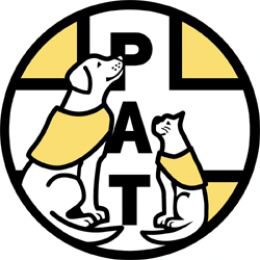|
The continued good health of your pet should be your priority but what about the cost of health care which can be huge at times? Pet insurance is a good idea but as usual one size does not fit all. You may find the cost of insuring your pet when he or she is young relatively cheap but in time the premiums could rise and be beyond your income. It is important to consider if you can really afford a pet, in cost, time and effort, before you take one or more into your home but life is rarely so straightforward. Your financial circumstances may change for the worse during your pet's lifetime or the animal may need extensive treatments running into thousands of pounds. Make sure you research the best value veterinary care in your local area taking into account customer reviews and references. You do not want "cheap" if it offers a bad service; look around for a vet's that will fit your animals need and costs if possible. Our local vet offered vaccinations for life for £100 when rescued Tinka came to live with us more than four years ago. That price includes an annual health check which in turn has little extras such as nail trims. You may think that chancing a set fee is not a good option but surely you are hoping your pet will live with you for many years? Tinka was aged around three or four when he came to live with us but in a year or two that £100 will have proved to be money well spent. One of the most costly treatments for a pet can be medicines. Simply giving an animal the equivalent medication that a person would take is not appropriate. However if you can source the medication cheaper through a local pharmacy or online paying a fee for the animal's prescription could come up trumps; it is especially good value for money if you pet needs ongoing medication possibly for the rest of his or her life. A note of caution: Buying medication for you, your family members or your pets online can be dangerous. Finding a reputable source is imperative. It is OK trying to cut costs but not at the expense of good health. Discuss the medication options with your vet and local pharmacy. RCVS, Royal College of Veterinary Surgeons, also has advice which you can find here; part of that is reproduced below: 10.2 Veterinary surgeons must:
0 Comments
WSPA, the World Society for the protection of animals, operates in many countries around the world. In 1981 the World Federation for the Protection of Animals (WFPA), founded in 1953, and the International Society for the Protection of Animals (ISPA), founded in 1959, joined together and became WSPA. WSPA often focus on particular aspects of animal cruelty such as bullfighting. In 2012 one campaign by WSPA Canada was to fund help for donkeys in Israel. It brought the Pegasus Israeli donkey shelter to our attention. According to the website: "In Israel, donkeys are so cheap to buy that when they are too old or tired to work, they're simply abandoned. Vulnerable and hungry, they are at risk of being hit by cars, attacked by dogs – or worse. Zvika Tamuz runs the WSPA-funded Pegasus shelter in Israel, which at any time is home to up to 100 abused and neglected donkeys. Zvika and his assistant Shimi rescue, rehabilitate and rehome donkeys and horses that have been abused, neglected or abandoned. Some have parasite infestations, some have injuries, and some are malnourished. As you can probably imagine, the list of problems these animals have after being so poorly treated goes on and on. Zvika does everything he can to care for donkeys in need, but he can't run Pegasus on passion alone. Even miracles cost money, and it's a constant struggle for Zvika to keep Pegasus going. You could help Zvika save one more donkey. Please make a donation to WSPA today to help animals in need." More than four years later the Pegasus Israeli donkey shelter continues to help animals in need. And it needs donations as much as ever. "Pegasus is an Israeli non-profit foundation located in central Israel which works 24 hours a day 7 days a week toward the rescue, rehabilitation and re-homing of abused, mistreated and abandoned horses and donkeys in Israel. Pegasus was founded by Zvika Tamuz with the support of WASPA (World Society for the Protection of Animals) in 2007. Pegasus works in collaboration with the National Traffic Police, the National Roads Association and various municipal veterinarians, and relies on public donations and support. Our goal is to educate the public about the proper treatment of this animals and keep up the rescuing and rehabilitation work at "Susita" sanctuary where they receive much needed physical and mental care, warmth and love." Although the advert above shows specific amounts of money WSPA will gratefully accept all donations however small. At one time dog owners would readily give their pet dogs table leftovers, often straight from the table. However, these days, advice generally warns against this. This is not simply modern society gone mad but instead it is sound advice.
Too much salt Many foods made for human consumption contain far too much salt. Products such as gravy granules have so much salt that they could cause a dog serious health problems. A dog's small kidneys would be unable to cope with this amount of salt and it would be bad for the animal's heart as well. Sugar Dogs do not need sugar, especially in its refined state. The sugar that we consume is harmful to dogs in many ways. These days the incidence of Diabetes in dogs in increasing. This is mainly due to the sugar in their diet. What may seem like a treat to you could, in real terms, be poison to a dog. Fats Similarly, rich fatty food is not good for a dog. It can increase a dog's weight and block its arteries in the much same way that a human's arteries become blocked. Such blockages can lead to heart failure. At the very least these fats will lead to weight gain which is not good for a dog. If the dog becomes obese its life span will be shortened and it may suffer from poor mobility and muscle and joint health. Excess protein Too much protein can make a dog hyperactive and restless. Onions Onions can be very dangerous to a dog. Having said that this may not apply to all dogs. However, is it worth taking the risk? Bones When you feed your dog table scraps, the dog could easily ingest a bone. Small bones such as those in poultry, like chickens and turkeys, are harmful to dogs. Digestive problems Many of the food manufactured for human consumption is just too rich for a dog. It will provide poor nutrition and may cause digestive problems. Problems could be diarrhoea, constipation, vomiting and more. Behavioural problems Feeding your dog scraps and titbits from the table can cause bad behaviour. Your dog may become fussy and only eat certain foods. The dog may also pester you and your family as you eat. Feeding your dog table scraps may also cause it to scavenge any old, discarded food that it comes across. Milk Do not give your dog milk to drink. This can cause tummy problems. Dogs like clean, fresh water. Overall Be kind to your dog. In the long run tasty titbits from the table may cause problems and giving them to your dog is not an act of kindness. Make sure that you NEVER give your dog chocolate, raisins, grapes or white bread as all could cause severe health problems. There are some foods that would not be harmful, but it is best not to start bad habits in the first place. Feed your dog its own sensible diet in order to ensure it keeps in tiptop condition. After all, you would not eat left over tinned dog food, would you? When you take that cute little puppy into your home, it is easy to forget that sooner or later this animal will get old.
Ageing is a fact of life, for all living creatures. How quickly a dog will age though, does depend on certain factors. Like people, there will be genetic predispositions toward certain health problems. Different breeds of dog have different life expectancies also. On the whole, though there are some obvious signs that your dog is getting old. Older dogs often have poor hearing That once alert dog, who heard the slightest rattle of the garden gate, may hear little these days. In fact, a burglar may be able to enter, raid and leave your home without your dog hearing a sound. Weight gain can also be associated with age in dogs Some of this will depend upon how well you have cared for your dog. Giving the animal too many treats to show your love is not really an act of kindness. Make sure that your dog has a healthy diet and reduce the amount of food accordingly as the animal becomes less active. An older dog generally has less nutritional needs. Creaking joints affect a dog in much the same way as a person The animal's mobility may decrease and it may be in pain. If a dog shows signs of pain be assured that the animal is suffering. Dogs tend to hide their pain well. No dog should ever be allowed to suffer so consult your veterinarian in order to receive advice and treatment regarding pain management. Poor eyesight affects dogs in much the same way as people An older dog may develop cataracts. Many eye problems are treatable but can be expensive. Some breeds of dogs are more susceptible to have eyesight problems than others. Dental problems can cause older dogs problems Tooth pain and infections may mean that the animal finds it difficult to eat properly. If your dog has bad breath this could be a sign of dental problems. A good dental routine, started when the animal is young, will help. Tooth scaling is possible at the veterinary surgery but will be costly. You also have to remember that the dog will need to be anaesthetised which may be problematic for an older dog. Heart problems and even heart failure can occur in dogs If the animal has led a healthy life style with a sensible diet and plenty of exercise heart heath issues may be minimised. Your dog's hair or fur will probably turn a little grey and the texture will change. You may notice that the dog's coat is less sleek and shiny and is more wiry and sparse. As we see our pets everyday it is often a person who visits rarely who will notice the changes in your dog. You may find that you have to walk more slowly and less distance with your pet, raise the height of the dog's feeding bowl because it has back problems or even help the animal to its feet at times. As long as the dog is not in pain and has some quality of life this part of ageing is simply nature running its course. Regular health assessments by a veterinarian will help nip health issues in the bud; the vet will also be able to offer advice on keeping your pet well and happy in older and old age. But every living thing has its time and must die hopefully later rather than sooner. Enjoy your pet throughout his or her life. Every stage of life has something to offer. If you are a caring dog owner you will want to shower your dog with love.
Along with this love go many other things, often food treats. This is understandable, especially if your dog was rescued. He or she may have been thin needing building up. Also food treats help build a bond between dog and owner and can act as a reward; very useful during training. However, somewhere along the line this may have got out of hand. Perhaps now you are almost killing your dog with kindness? Just like people once those extra pounds are in place they are not always easy to shift, but shift they must. Carrying extra weight can damage a dog's health and quality of life and in some cases will be life threatening. Firstly let me say that some dogs do have health problems which cause an increase in weight. This could be a thyroid condition, for example. If your dog is fat, especially very fat, consult your veterinarian before starting it on a healthy eating regime. This will enable you to exclude any under lying health problems and enable your vet to monitor the animal's weight loss. So is your dog overweight? Well first things first then, is your dog really overweight. Try to look at your pet with an honest eye. Look for the signs and symptoms that the dog is overweight. Hopefully your dog will not be grossly overweight. This could mean that the pet is only just overweight or will soon be. Does your dog have a "waist" of sorts? Like people some dogs are more prone to become overweight than others, and some also love their food a little too much. Run your hand along the side of your dog. Can you feel the animal's ribs? Can you see them slightly? Healthy weight dogs often have their ribs slightly showing. Is your dog panting for breath at the slightest exercise? All of these are good indicators about your dog's weight and state of health. Weigh your dog on weighing scales. You may need to weigh yourself first and then weigh yourself carrying the dog. Take the first weight away from the second to see the dog's weight. If your dog is large or a wriggler you may need help to weigh the dog. If your dog is very large weighing it at the veterinarian's will be appropriate. They have the best scales for such a task. Research the Internet and your local library in order to check the ideal weight for your animal. There will probably be a few kilos or pounds either way but you should at least have a guide now. If your dog is obese consult your veterinarian; this way your dog's progress and health can be monitored during any weight loss program. How to help your dog lose weight A dog is reliant on you for what food goes into its tummy. FACT. If the animal is obese it is down to YOU. There are many ways that you can help your dog lose weight and here are a few:
Overall you love your dog so be kind and make the right choices about its diet. Much of the time it is about sensible buying and feeding. Helping a dog lose weight is a lot like when we humans need to lose weight. Take a sensible but long approach. Weight lost fast is not usually going to stay off. Make sure that you weigh your dog from time to time to ensure that you are getting the right balance. However you will probably be able to see the weight loss with your own eyes. Dogs that carry extra fat will usually have a shorter life. Dogs that are overweight, or even obese, will suffer from more health problems such as heart, breathing and joint problems. A natural environment for a dog would mean it would be lean and nimble. Let's face it, he or she would have to be to survive. Dogs nowadays are often rather spoilt and usually want for nothing. This can mean that a dog uses far less energy than the animal would have done in the wild. However, the owner may still be feeding the dog as if it had to fight for its survival, on a daily basis, and in all weathers. In reality the dog may curl up near a radiator for most of the day. The dog will not usually have to fight for its food also. Your pet dog is a domesticated animal that has evolved over the years. Show that you really love this dog and treat it as such. If you ignore the signs, your dog's health will suffer and, if nothing else, you could be facing hefty vet bills. http://www.onewomansomanyblogs.com/animals/benefits-of-dog-walking If you are a dog lover you will already be well aware just how intelligent dogs are. You will also probably know that they are used to aid man and woman in many ways. You may not however have heard of Pets as Therapy. This charity uses various animals to help people in need. The animal may be used for example as a visitor to an elderly person or a sick child. The charity uses dogs more than any other animal and these are usually referred to as PAT Dogs. I was lucky enough to watch a demonstration by this charity at a local veterinarian event a couple of years ago. I have to say that I was more impressed than words can convey. Before my dog Leo became ill I considered offering him to PAT dogs. He would still have been my dog but acted as a volunteer and taken on visits to residential homes, children's wards, hospitals and more. He had the perfect nature to be a PAT dog; sweet tempered and adorable looking. He was also well behaved and loved all people and children. Perhaps your dog would make a great volunteer? The volunteer visiting scheme usually includes you visiting also. This can be fun as well as difficult at times. It is yet another pull on your time but a worthy pull. Many people who perhaps now have to reside in a residential home adore animals. Perhaps they always kept a pet dog at home. As someone who would fall into this category I can understand how much they may miss having a pet. But there is also the therapy side of a visit from a sweet animal. It has been well reported that stroking a dog is very calming and relaxing. If you are stroking some dogs it is hard not to smile as you do so. Dogs respond well as they love attention. This may mean that the dog snuggles gently into the patients' legs. All of this can be very therapeutic for all concerned. I have copied this brief PAT dogs history for their website:. PETS AS THERAPY IS A NATIONAL CHARITY FOUNDED IN 1983. IT IS UNIQUE IN THAT IT PROVIDES THERAPEUTIC VISITS TO HOSPITALS, HOSPICES, NURSING AND CARE HOMES, SPECIAL NEEDS SCHOOLS AND A VARIETY OF OTHER VENUES BY VOLUNTEERS WITH THEIR OWN FRIENDLY, TEMPERAMENT TESTED AND VACCINATED DOGS AND CATS. What wonderful statistics. As PAT dogs say this charity brings a little home life and normality to those away from their home environment. The animals can bring comfort and so much more. The charity is researching the many benefits PAT dogs can offer the disabled. This final statement from the PAT dogs website is very important: "There is an ever-growing demand for visits by our volunteers with their P.A.T. dogs and cats. We rely on your donations to help us satisfy that demand. PLEASE GIVE GENEROUSLY" I do hope that you can. This charity deserves more recognition and funding than it currently receives. Jessie came to us many years ago as a temporary foster dog but she was never going anywhere. From a naughty and previously ill-treated nine-month-old dog she grew in size and in beauty into a dog with the sweetest disposition. She gave us many years of pleasure and loyalty and hopefully we gave her a loving happy home; but with age she became almost blind and we were still there for her.
Sadly on September 12, 2015, Jessie's life came to an end. But here is what we learned as she grew older and her eyesight began to fade Daily challenges When your dog goes blind there are many daily challenges. Here are just a few that Jess faced:
What you can do Never take your dog's eyesight problems for granted. Make sure a veterinarian checks your dog's eyesight at each visit especially in older dogs. A sight problem could be a sign of an underlying health problem or even easily fixed. If the problem is cataracts surgery may be possible but expensive. A good vet should always consider your dog's age and any other health concerns before considering surgery; anaesthetic in older dogs could prove fatal and should only be given in emergency or severe health situations. Dogs rely a great deal on sense-of smell and so Jessie was usually able to find her food bowl without problems. But it is still best to set aside a feeding part of a room or outdoors and stick to it. Remember that dogs are unable to communicate concerns to you vocally and you have to think for them sometimes. Think about this when you are trying to make your home friendlier for a blind pet. Quality of life For all of us quality of life should be paramount. Jessie went into a shell when her sight began to fail and her beloved companion Leo died. Depression set in and she took to her bed big-time. Feisty Tinka a young small rescue dog with issues breezed in and breathed new-life into Jess. They looked incongruous as we went for walks, him so small, and she so tall, but they became firm buddies. Taking another dog in when your existing one is ageing fast does not always work. The older dog can feel pushed out if you do not play the game. The older dog must be top dog, fed first, go through doors before the new intruder and so on. Jessie and Tinka never quite had the almost Mr and Mrs Relationship she had with Leo but he was a naughty youngster for her to get into shape. Jessie's eyesight remianed at the nuisance stage throughout her latr years; if visual impairment threatens an aimal's quality of life itmis best to act. Fond memories When Jess first came to us in around 2003 she was thin and leggy. She had been mistreated physically and mentally. Finally her cruel owners decided to move home home and left her behind tied to a tree in the garden. In the long run that was a good move for Jessie but she was left without food and water and was terrified. She had the usual rescue dog problems eating again and settling in; but one memory hard to ignore is her curiosity. As we took walks she would look up at birds flying by, look back at other dogs and kids and stretch her neck to look over garden walls and have a nosey. It is sad that she was no longer able to enjoy that in later life but she, Tinka and still enjoyed life. When the end came it needed veterinarian intervention but it was peaceful and calm. Jessie calmly went to sleep one last time but she will be forever missed. Dog owners in the UK will soon be on an annual dog watch. Bonfire night is an annual event each November 5 but these days it extends for days, weeks or months. Modern Fireworks are noisy to say the least. The dark days of November will begin to sound as if War has broken out as fireworks continue to be enjoyed by some and hated by others. For pets such as dogs, and their owners, it is a nightmare.
With an expensive price tag fireworks do not come cheap these days. All of that aside though people never consider the effect all of this has on various pets and animals, unless that is they are a an animal owner. So what can you do to help your pets through this British bonfire season? If you have an animal that is very frightened consult your veterinarian. One dog we owned sometime ago was so scared that he would become very ill. Eventually the vet prescribed a mild sedative. Once my dog had taken his medication he would happily almost smile his way through the thunderous firework displays. If you know that there will be fireworks, for example 4th July in the USA or 5th November in the UK forward planning will help.
By all means enjoy your fireworks but give a little thought to pets and their owners. Fireworks these days are used to celebrate birthdays, New Year Christmas or just about anything. Fine if the display is short lived. Currently in the UK, nights that have fireworks will have the noise and bright lights from early evening until midnight and beyond. Years ago Bonfire night was over pretty quickly. What does amaze me us is that as each person seems to be pleading poverty these days, people can afford to buy such fireworks to excess and constantly. Surely this money could be put to better use? |
Archives
September 2018
Categories
All
|

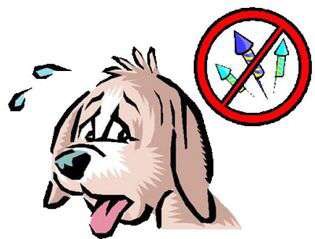

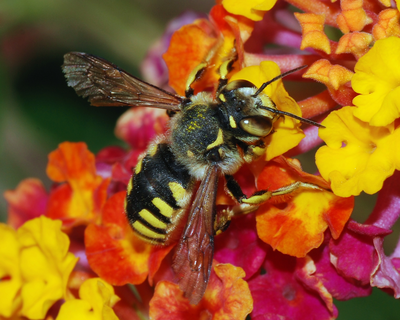
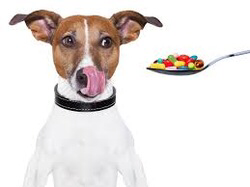
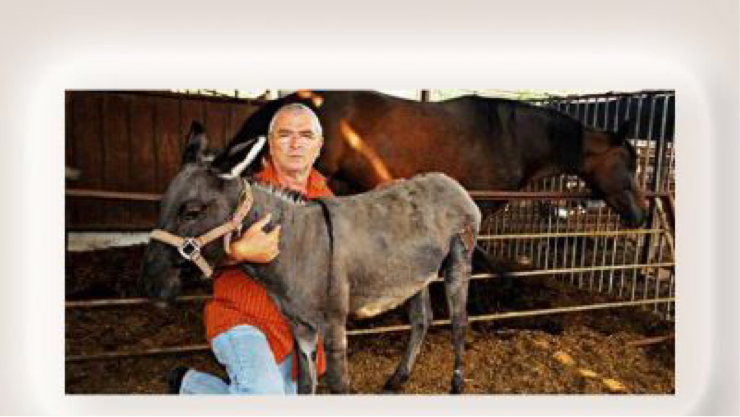
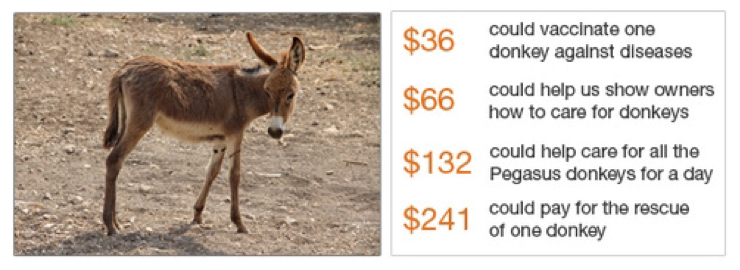

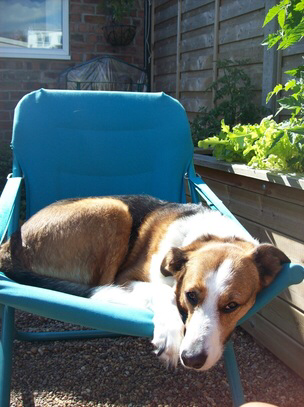


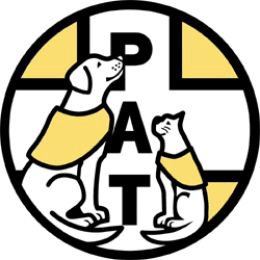
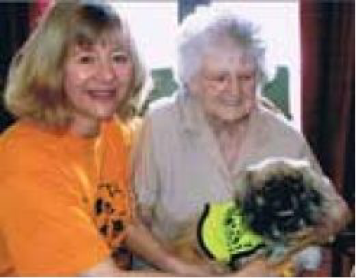
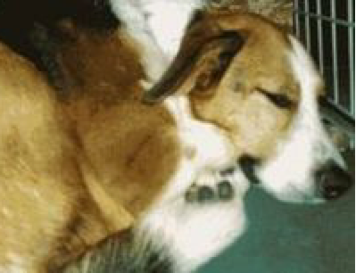
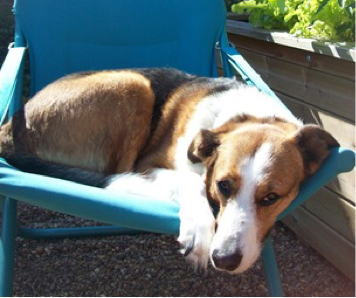
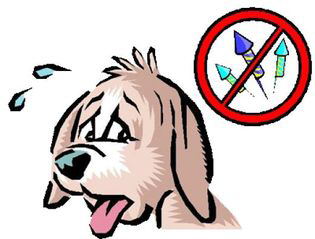


 RSS Feed
RSS Feed




